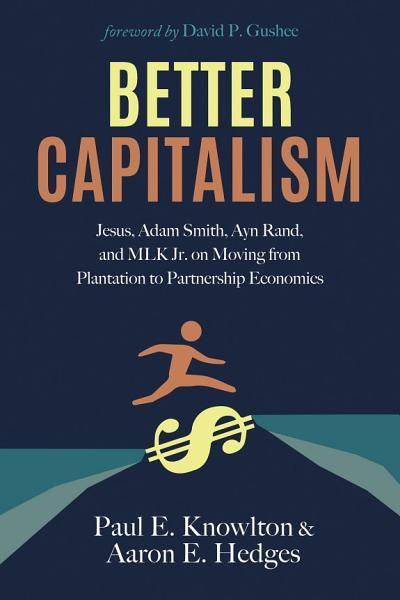[Read] Book Better Capitalism: Jesus, Adam Smith, Ayn Rand, and MLK Jr. on Moving from Plantation to Partnership EconomicsPaul E. Knowlton

Ebook PDF Better Capitalism: Jesus, Adam Smith, Ayn Rand, and MLK Jr. on Moving from Plantation to Partnership Economics | EBOOK ONLINE DOWNLOAD
If you want to download free Ebook, you are in the right place to download Ebook. Ebook/PDF Better Capitalism: Jesus, Adam Smith, Ayn Rand, and MLK Jr. on Moving from Plantation to Partnership Economics DOWNLOAD in English is available for free here
[Download] Link : [Downlload Now] Better Capitalism: Jesus, Adam Smith, Ayn Rand, and MLK Jr. on Moving from Plantation to Partnership Economics
Read More : [Read Now] Better Capitalism: Jesus, Adam Smith, Ayn Rand, and MLK Jr. on Moving from Plantation to Partnership Economics
Description
Sometime in your experience of money & capitalism you've thought to yourself, "There's got to be a better way!" Here it is.
The 1st step is admitting we have a problem. But merely recognizing problems isn't enough -- we offer constructive solutions. This book gives you the more beneficial ideas and applications of capitalism based on
Partnership Economics. Want to move from exploitation to mutual benefit? Read this to unleash a more profitable and ethical capitalism.
What's in it for you:
*the 5 Relentless Rules of Economics (Rule #1: all exchanges involve frictional costs)
*a 4-part Ethic for Capitalism that spans theology to profit to corporate governance
*specific practices for positive change in businesses, government, professions, and culture
From the foreword by Rev. Dr. David Gushee, Past President of American Academy of Religion, Past President of Society of Christian Ethics:
Better Capitalism is an extraordinary creative achievement, without parallel in the literature of economic and business ethics, Christian or otherwise. Paul Knowlton, JD, MDiv, and Aaron Hedges, MBA, MDiv, here engage pretty much the entire landscape of modern economic life with a realistic but values-rich challenge to move beyond what they call plantation economics and instead move to what they call Partnership Economics. One of the things I like most about Better Capitalism is the way it shoots the gap between our current cultural extremes: it is by no means a defense of laissez-faire capitalism but neither is it a socialist manifesto. The book is chock full of fresh and deep research, and this data then informs the book's realistic, concrete reform proposals that corporate executives, government officials, and everyday people can implement.
